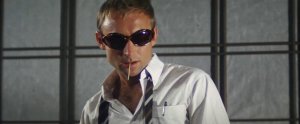
A beautiful paradox
At the heart of the incredibly titled Beach of the War Gods is a beautiful paradox, one built upon love and shame, it's wuxia mayhem by way of Kurosawa and Leone all filtered through the eyes of Jimmy Wang Yu. Whilst hand-to-hand combat had started to become the name of the game following the dawn of the 1970s, this film sees Wang Yu take a decisive step back from what he was more well-known for, to make a film in the genre that had previously dominated, the wuxia. Granted, it does look a little rougher around the edges than many of its contemporaries, but its ambition and scope are to be marvelled at. Wang Yu makes fabulous use of the wide frame with some brilliantly composed and thoroughly beautiful shots sprinkled throughout. It's enriched with depth, movement and a constant visual interest to keep you engrossed with wind machines regularly blasting away, waves crashing dramatically and fire adding powerful amounts of colour. And this is all before I mention the film's awe-inspiring and action-packed finale that brings 25 minutes of uninterrupted magnificence to the forefront. Yes, the characters and plot are exceptionally flimsy and the dialogue is superficial at best; yet the stripped-back approach works in Beach of the War Gods' favour, never intruding upon its gloriously bloody action and rushing towards its lengthy, epic final battle without any fat getting in the way.Was this review helpful to you?
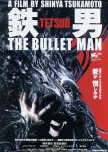
A film out of time
A film out of time, there's something rather tragic about Tetsuo: The Bullet Man, it's just so poorly misguided that it ends up feeling off in direct contrast to its predecessors. There's a good film in here somewhere but it feels like a film from a different era, one that for all Tsukamoto's intent does not work as intended. It's hard not to assume he knew what he was doing. When he made The Bullet Man's face first turn to iron, he must have known that face paint looks cheap. He must have known those hyper-awkward script deliveries from a cast and crew who don't share the same language as its American lead would come across as embarrassing. It certainly feels like Tsukamoto knew full well that certain elements would be off and just tried to run with it, the zaniness is here but it feels wrong. The digital look does not work for this film with the overly excessive shakey cam coming across as simply nauseating, there's rarely a moment it sits still. The film's obnoxious sound mix only alienates the audience further, with dialogue delivered in hushed whispers but seemingly everything else amped up to eleven, I found myself adjusting the volume way too often to even attempt to engage with the film. Ultimately, Tetsuo: The Bullet Man feels more like a poor man's American remake of the original duology, lacking the gonzo mystery and waking nightmare horror. Trent Reznor's theme song is a banger though.Was this review helpful to you?
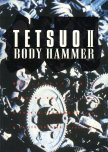
More of the same
Tetsuo II: Body Hammer is Tsukamoto's Evil Dead II, a sequel that reworks the original with more technical polish on a larger budget. There's a big thematic shift from the erotic to the militaristic, with a greater focus on biogenetic weaponry, one that's far less frantic, instead focusing on developing its characters and providing them with a narrative to inhabit. The production values are much higher than that of its predecessor with Tsukamoto's head-spinning experimentation still on full display, the move away from monochrome allowing him to add strong colour filtration to a heady visual brew of crazy editing and bizarre cinematography. Shinya Tsukamoto is a man who knows what he's doing at this point. Ultimately while Tetsuo II: Body Hammer may lack the more disturbing elements of the original, the eccentricities are still here; filled with some excellent sequences and something to say about industrialisation while incorporating some top-notch effects work, leaving it as a very solid piece of filmmaking and a prime example of confrontational underground Japanese Cyperpunk cinema.Was this review helpful to you?
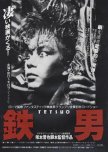
Metallic Mayhem
Metallic mayhem and graphic depravity fly thick and fast in Tetsuo: The Iron Man, it draws on the marriage of flesh and technology that inspires so much of David Cronenberg's work and twists it into a manga-influenced cyberpunk vision. This 67-minute lunacy is probably the closest approximation to capturing a sustained migraine in pure celluloid form, what's on screen borders on the extreme and experimental, all matched by a hysterical and unnerving score. Chu Ishikawa's clattering metal percussion and unrelenting terror synths sometimes border on unlistenable but add to the film's uniqueness and disgusting style. Less a coherent plot than a series of disturbing images loosely struck together, confrontation and violence erupt at breakneck speed in this nearly dialogue-free odyssey, assaulting every sense it can with the tenacity and ingenuity of DIY filmmaking. The stop-motion effects give the fusion of bared wires and exposed ganglia an unnervingly vivid physicality. A hysterical, histrionic ode to cyberpunk fetishism, Tetsuo: The Iron Man was one of my early ventures into the realm of Japanese cinema, one that really isn't my thing but is unquestionably a feat of imagination and technique yet an hour of it is more than enough.Was this review helpful to you?
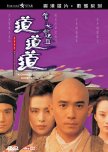
Sumptuous
Simultaneously a distant sequel and retread of the original film, A Chinese Ghost Story III keeps things together a bit more than II did, following the tradition of the previous two films this closing chapter once again gifts us with equal doses of comedy, action, romance and horror. The photography is as gorgeous as the previous entries, playing with colour, light and smoke with an abundance of stunning direction throughout, Tony Ching Siu-Tung certainly pulled his weight with this series balancing his style with Tsui Hark's eccentric sensibilities. Instead of Leslie Cheung's bumbling tax collector, we get Tony Leung as a bumbling novice monk, a worthy successor, adding a great charm and likeability to his character thanks to Tony's comedic timing. The film delivers a cinematic seductiveness that greatly benefits from the fast-paced plot, chock full of crazy magic spells and action sequences, spellbinding female ghosts, hair-raising demons, a touch of humour, drama and romance, a parade of crazy special effects and a sumptuously enchanting score for a third time courtesy of James Wong and Romeo Diaz. While it may certainly have many similarities to the first, A Chinese Ghost Story III almost plays like a parody of it at the same time, all without being too ridiculous and closing the trilogy out in style. The lengths men will go to for Joey Wong hey?Was this review helpful to you?
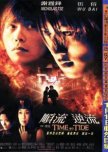
Genesis
Time and Tide is Tsui Hark's Genesis, his attempt to start again, a rebirth. Made after his failure to break into the American market with his Van Damme duology, Time and Tide is a question of trust, renewal and the ebb and flow of time that lead both its characters and the narrative, a very confusing narrative but a narrative nonetheless. The film's appeal lies in its contemporaneousness, of its time yet still ringing true today, not seeming outdated in the slightest with Hark's style is all over the movie and yet not at all. There are his usual tried and tested techniques but at the same time something totally different; that alone makes his movies oh-so utterly fascinating, evocative of older wuxia flicks. While it might seem generic on the surface, Time and Tide is a fabulous take on an action noir thriller with a new wave twist.Was this review helpful to you?
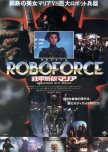
Frank Miller on drugs
I Love Maria is like if Frank Miller got stoned halfway through writing RoboCop 2, suffered an intense acid trip while watching Metropolis with Gundam playing in his mind and then got Tsui Hark to direct and star in it. Horrendously cheesy but entertaining from start to finish and of course, Tony Leung and a robotic Sally Yeh to top it all off.Was this review helpful to you?
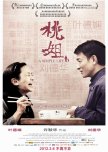
Beautiful
A Simple Life is simply divine. Expressing hope in human nature which befits the challenges of taking care of our sick and elderly, while its premise is rife with potential for sentimentality it remains remarkably restrained. It's a subject matter that Director Ann Hui handles with tender care and attention that's complimented by a plangent piano soundtrack to tug at the heartstrings tempered with a downbeat reality and tear-jerking performances from both Andy Lau and Deanie Ip that are just the icing on the cake. While these sorts of films aren't normally my cup of tea, you must have a heart of stone if this doesn't leave you unaffected by the sheer wholesomeness of its depressing reality.Was this review helpful to you?
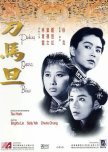
A true cinematic wonder
Peking Opera Blues is a testament to the eccentric genius of Tsui Hark, his bizarre sensibilities and almost impenetrable filmmaking style which hasn't always yielded the best results, but here everything works. Blues is a movie that combines more genres and Hong Kong-specific themes than one could possibly imagine. An unlikely concoction of historical and political intrigue, acrobatic action, screwball comedy and unabashed romanticism; all the while it mocks China for its complete ignorance of democracy. Peking Opera Blues is a true cinematic wonder and a genuine Hong Kong classic.Was this review helpful to you?

Decent sequel
Featuring all the elements that made All the Wrong Clues so hilarious to begin with, Teddy Robin's sequel All the Wrong Spies hits similarly great beats whilst expanding on the humour in new ways. Be it with exploding pineapples, fourth wall breaks, slapstick dancing or bumbling Gestapo officers who can't go five minutes without yelling a rowdy hi to The Führer. It's all performed brilliantly by its cast but, sadly, there is no face-palming skeleton to be found here.Was this review helpful to you?
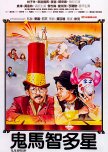
All the Wrong Clues for the Right Solution
0 people found this review helpful
Lusciously daft and laughable
Tsui Hark's first big success at the box office, All the Wrong Clues marks a drastic change in style from his first films. Rather than tackle any serious or depressing subject matter, Hark consciously tried to create something lusciously daft and laughable. You can't deny that the man succeeded because All the Wrong Clues is just genuine insanity combined with outright hilarity. Despite being a parody of Hollywood detective and noir fiction, the film isn't any more absurd than most actual stories of that genre, there are some brilliantly staged slapstick routines and a likeable cast delivering great jokes where it counts. Although I found myself heavily distracted for most of the film by the gorgeous Yiu Wai and her choice of wardrobe 😳. I was looking respectfully 😳. Honest.Was this review helpful to you?
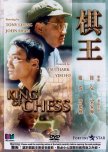
Historical melodrama mixed with goofy comedy
Although seemingly co-directed by Yim Ho, King of Chess has Tsui Hark written all over it, with Hark taking full control later in production leading Ho to disown the movie entirely, the end result mixes their styles but Hark's is way more prevalent than Ho's historical melodrama. The decidedly goofy comedic beats and experimental editing feel out of place for a movie like this, dealing directly with the uneasy history of Mainland China under Mao - Hark's movies often take a more symbolic or allegoric stance on the matter, so makes for a nice stylistic discrepancy in his filmography. However, the cross-cutting narrative between Mao's China and 90s Taiwan draws up some interesting results of paralleling struggles and combined with Lo Ta-yu's infectious synth-driven musical score leads to a movie never quite in focus and equal parts infuriating as it is charming in a way only Tsui Hark can deliver.Was this review helpful to you?
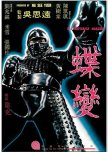
Tsui Hark's debut
The film debut of legendary Hong Kong director and producer Tsui Hark, The Butterfly Murders is a blend of everything and anything into what I'm going to say is an 88-minute new-wave wuxia murder mystery spectacle. If I'm honest, whatever you thought going into this film with a title like that, will not be what you get. Hark's visual style and later hallmarks are on clear display but also tangled up in a plot so confusing that if you look away for a second or even blink, you'll miss vital details and thus the whole story. There is one thing you can infer from the title, however... the butterflies do indeed kill people.Was this review helpful to you?
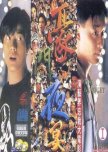
For a good cause if nothing else
Seemingly roping in about 95% of the Hong Kong Cinema industry, pretending that The Banquet qualifies as anything but a throwaway romp would be nonsensical. The story is strung together with the subtlety of a screaming competition and the plot twists are hackneyed and lame. The cameos and walk-ons are obviously meant to satisfy fans. The film's message is a well-meaning one, but the steps taken to get there are far from creative or interesting. While occasionally amusing, the film isn't really that good, as it was solely made to contribute to the relief efforts of the Yangtze River flood victims, so you can't deny the noble intentions of everyone involved as, ultimately, it does everything it's supposed to.The most pressing issue for me however was the clear absences of Chow Yun-fat and Jackie Chan, must have been busy that weekend.
Was this review helpful to you?
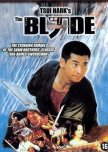
A whirlwind of blood, dust and psychedelic colour
Tsui Hark's 90s reimagining of the classic Shaw Brothers One-Armed Swordsman series, The Blade is a whirlwind of blood, dust and psychedelic colour. Beneath its rough, brutal appearance lies an uncompromising and technically evolved offering that takes a simple tale of vengeful perseverance and gives it the nihilistic gritty art-house treatment offering new twists on old conventions. Although seemingly frantic, it's never random, Hark brings such meticulous attention to everything it's hard not to be impressed.Was this review helpful to you?

